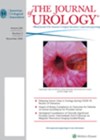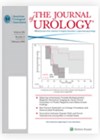
Journal Reviews archive for 2021
Assessing resolution of isolated hydronephrosis – is APPD superior to the SFU system?
Antenatal scanning detects urinary tract dilatation in 1-5% of pregnancies. Isolated hydronephrosis (i.e., that not due to secondary dilatation e.g. bladder dysfunction) is known to resolve or improve in most; some patients may, however, require intervention through deterioration of obstruction...
Urinary diversion and infections
This article will be of interest to colleagues undertaking reconstructive surgery. Urinary diversions have been performed for decades. Common indications are muscle-invasive bladder cancer, neurological disorders, inflammatory conditions and congenital malformation. The diversions could be continent or non-continent. Complications due...
Vitamin D and LUTS
Lower urinary tract symptoms (LUTS) and vitamin D deficiency have been thought to be connected, but the association has been inconsistent. Vitamin D receptors have been identified in the bladder, prostate and pelvic floor muscles, and it has been linked...
Risk stratified approach to early intervention for renal colic
Existing guidance on this topic is based on older and smaller studies, and there remains variation in practice. This review of database outcomes of 1168 out of 3081 (38%) patients who underwent early intervention after presentation to nine Canadian emergency...
Testicular masses – can the testis be spared?
The standard practice for testicular masses confirmed on ultrasound has been to offer an inguinal orchidectomy, on the presumption that the mass represents testicular cancer. The growing use of scrotal ultrasound for various indications has led to an increase in...
Hypospadias – detecting your complications
All hypospadias surgeons will encounter complications. They are estimated to occur in around 10% of distal hypospadias repairs and more than 50% for proximal forms. Some controversy exists regarding the length of follow-up needed to detect them. Some series have...
Call for standardised reporting of adverse events
This article will be of immense benefit to all of us involved in mortality and morbidity meetings and Clinical Governance, especially registrars and junior members of the team. The authors present data from the UK, USA and Europe. In prostate...
Delayed decompression of the infected obstructed kidney increases fatality
Well, we know this, I hear you all say. It is standard practice that the obstructed kidney with associated infection requires prompt decompression, and this is drilled into all UK trainees. It is surprising therefore that although we frequently deal...










